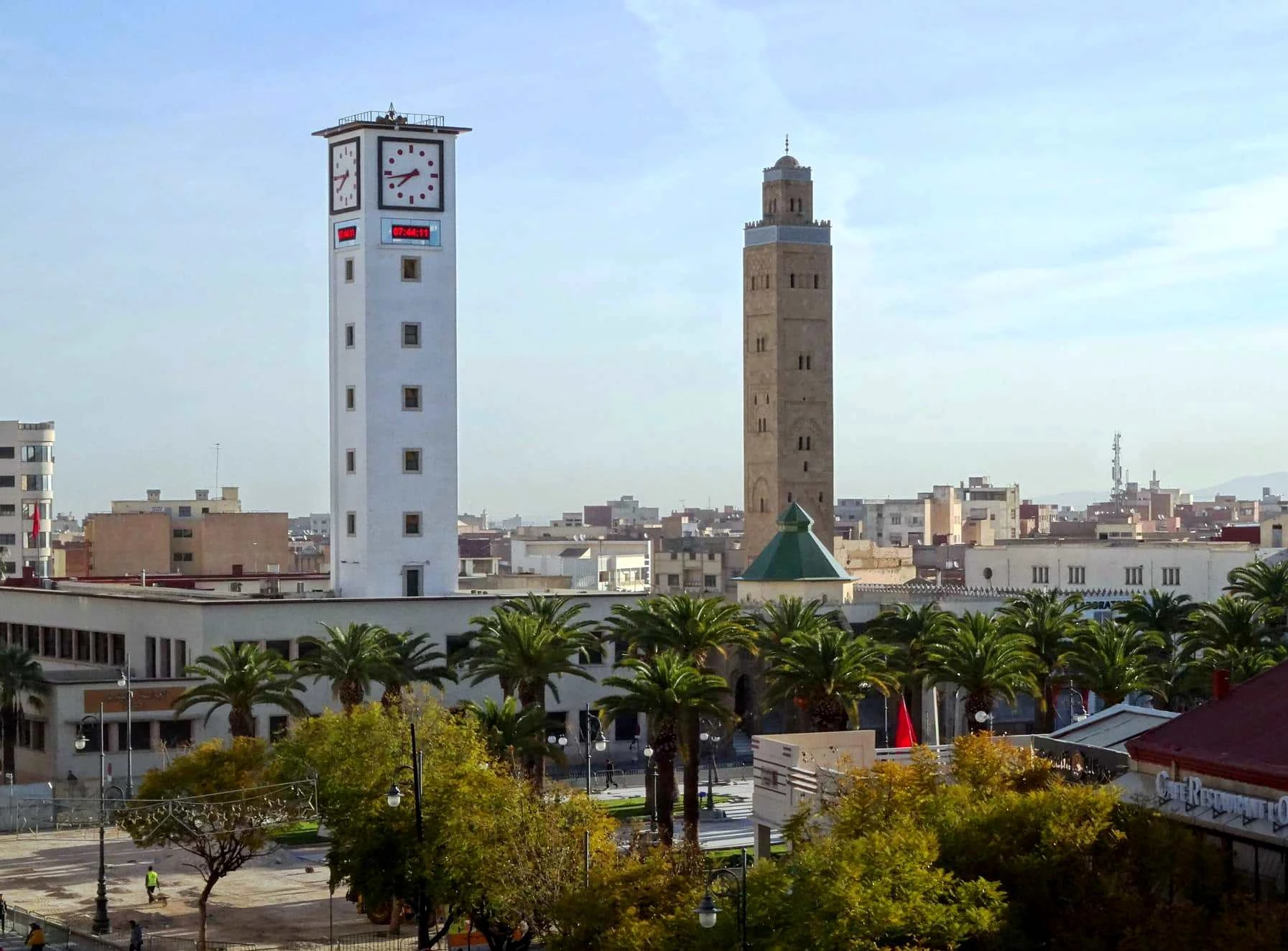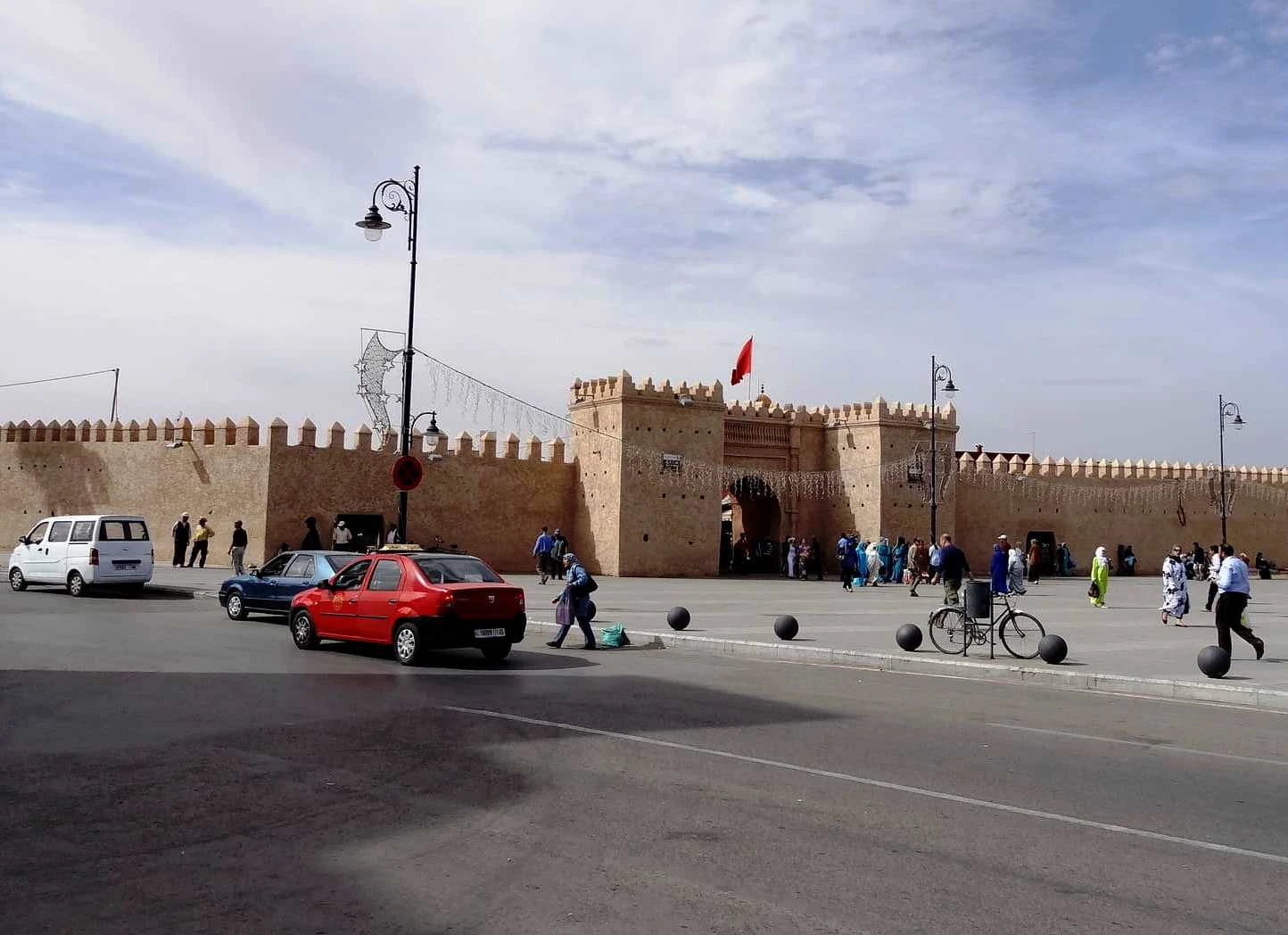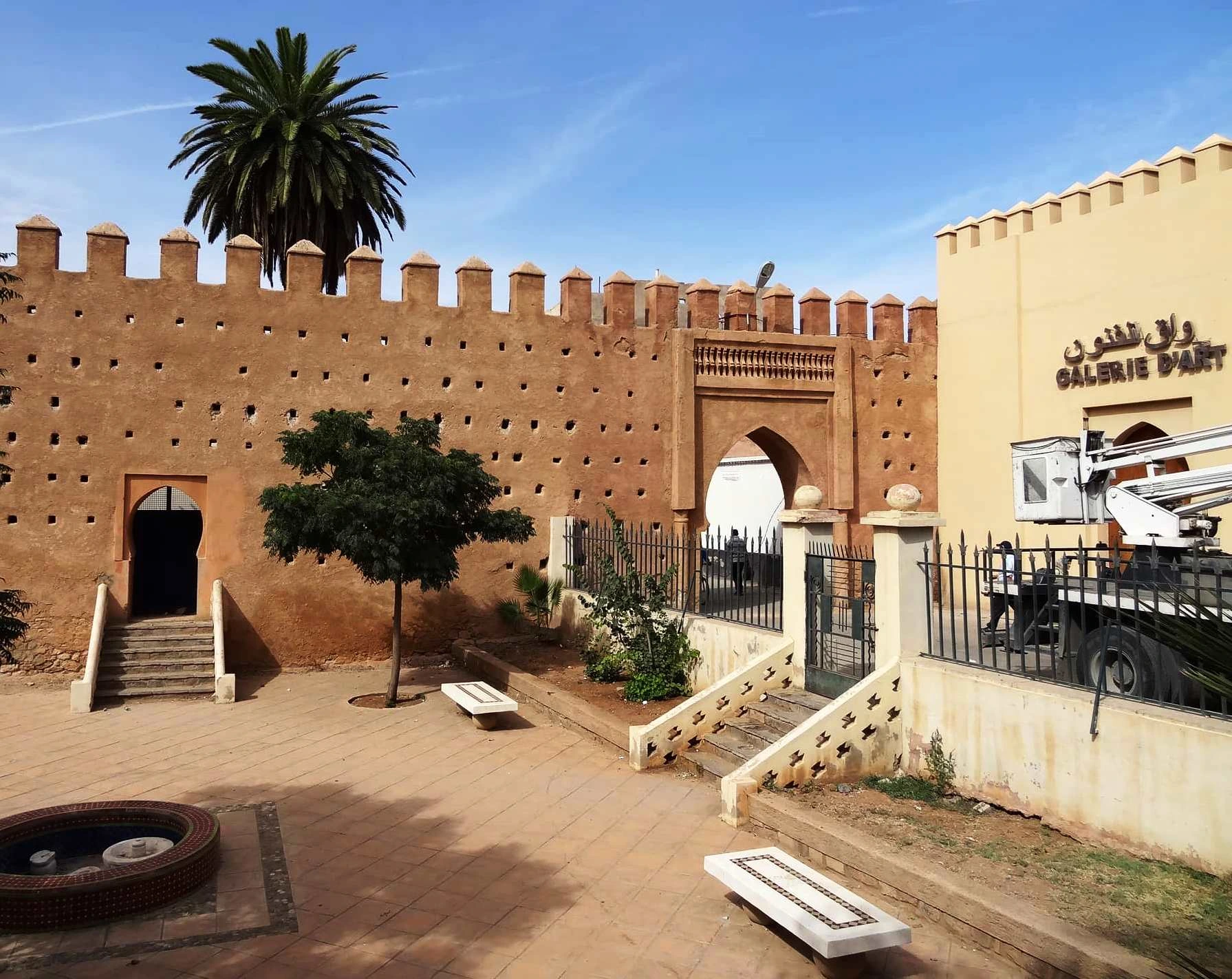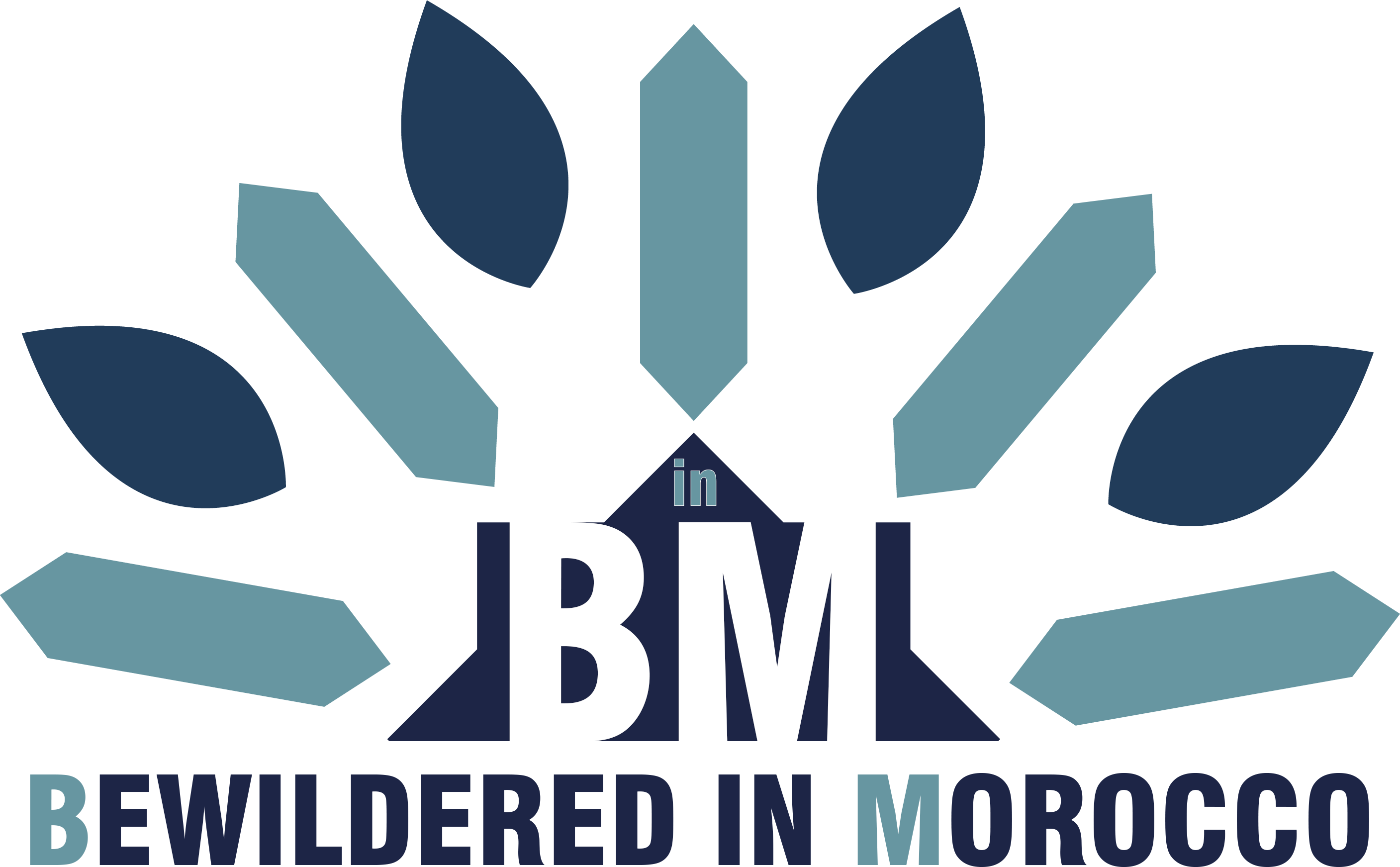When planning a trip to Morocco, most travelers think of Marrakech's bustling souks, Chefchaouen's blue streets, or Fez's ancient medina. But today, I want to introduce you to a hidden gem in Morocco that almost no tourists visit - Oujda.
Located in the northeastern corner of Morocco near the Algerian border, Oujda offers an authentic glimpse into everyday Moroccan life that you won't find in tourist hotspots. I discovered this city while traveling south along the Algerian border, following roadbook routes RB33 and RB40 after crossing from Melilla, the Spanish enclave in North Africa.
First Impressions of Oujda: A Non-Tourist City

As we parked our vehicle in Oujda, my first thought was, "This is definitely not a tourist city." And that's exactly what made it special. I wanted to see what a real Moroccan medina looked like away from the tourist trails, buy some local sweets, and simply experience daily life here.
"I think this is a city that's not touristy at all, but we wanted to see what the medina looks like and buy some small pastries."
Walking through Oujda's streets, I immediately noticed the absence of souvenir shops and tourist restaurants. Instead, there were locals going about their daily business, shops selling everyday items, and markets filled with produce and meats for local consumption rather than tourist curiosities.
Getting Lost in Oujda's Medina
Like many Moroccan medinas, Oujda's old town is a beautiful maze where getting lost is part of the experience. The narrow alleyways twist and turn, creating a labyrinth that challenges your sense of direction - especially when you stop to chat with friendly locals!
"It's a real maze, and when you start talking to people, you turn around, turn back... I've completely lost my sense of direction now."
The medina was bursting with color and life. Vibrant fabrics hung from shops, traditional Moroccan clothing was displayed in windows, and everywhere I looked, there was evidence of authentic Moroccan craftsmanship.
Traditional Moroccan Clothing Shops
One of the most interesting aspects of Oujda's medina was exploring the shops selling traditional Moroccan clothing. I learned about the different types of traditional garments:
- Gandora - A traditional Moroccan robe
- Jabador - A type of Moroccan suit with a collarless neck
- Jellaba (or Djellaba) - The hooded robe worn by both men and women
The shopkeeper explained that jellabas with hoods are traditionally worn for prayer, during Ramadan, and for special occasions. It was fascinating to see both machine-made and handmade garments, with some artisans working on traditional embroidery right in front of their shops.
The shops were filled with colorful threads used for decorative embroidery on these garments. At around 250-400 dirham (approximately $25-40), these traditional outfits represent both everyday clothing and an important cultural tradition.
Oujda's Vibrant Food Market
Following the winding streets eventually led me to Oujda's food market - a sensory explosion of sights, sounds, and smells. Unlike the sanitized supermarket experience we're used to in Western countries, here everything was raw, real, and unfiltered.
I saw entire cow carcasses being butchered, with different cuts on display - ribs, shoulders, thighs, and yes, even heads. While this might be shocking for some visitors, it's a reminder of where our food actually comes from, and the honesty of Morocco's food culture.
The market was alive with activity - butchers calling out prices, shoppers haggling, and cats waiting patiently for scraps. Fresh fish, spices, vegetables, and fruits created a colorful mosaic that represented the ingredients of Moroccan cuisine at its source.
Unexpected Moroccan Hospitality

What truly made my experience in Oujda special was the incredible hospitality I encountered. While wandering through the streets, I struck up a conversation with a local named Mohamed who spoke French well. What started as a simple exchange turned into an invitation that would become the highlight of my Moroccan journey.
"If you'd like, I can give you my number. If you want a tour to see the cafés I mentioned... if you don't have time today, I invite you tomorrow or the day after."
Mohamed wasn't looking for money or trying to sell anything - this was genuine Moroccan hospitality in action. He explained that in Morocco, when they have guests, they take the entire day to prepare traditional meals, pastries, and create a proper welcome.
The next evening, Mohamed and his family hosted us for Iftar (the meal to break fast during Ramadan). Their home was beautiful, with a welcoming sitting area and a table full of homemade Moroccan dishes:
- Harira soup - A traditional Moroccan soup
- Chebakia - A honey-coated sesame cookie shaped like a flower
- Msemen - A square-shaped Moroccan pancake
- Beghrir - A thousand-hole pancake
- Sandwiches filled with tuna, tomato, corn and mayonnaise
Meeting Mohamed's family was incredible. His father turned out to be a former national athlete who held Morocco's 60-meter sprint record (6.6 seconds) in 1987 and won first place at the Mediterranean Games. Mohamed's brother Yassine was an artist who performed traditional music.
The Giving Spirit of Oujda
Another meaningful experience in Oujda came when I met with members of the Union of Medical Students Cultural Association. These dedicated students were preparing care packages for those in need throughout the city.
Each package contained:
- Multiple crepes
- Pancakes
- Sandwiches with tuna, tomato, corn and mayonnaise
- Milk
I joined their team in assembling and distributing these packages around Oujda. Seeing the gratitude on recipients' faces was deeply moving and showed yet another dimension of Oujda's community spirit.
Why Visit Oujda? A Different Side of Morocco

Oujda might not have the Instagram-famous blue streets of Chefchaouen or the snake charmers of Marrakech, but it offers something more valuable - an authentic glimpse into real Moroccan life and culture.
Here, you'll experience:
- Genuine interactions with locals who aren't tired of tourists
- Traditional markets selling goods for locals, not souvenirs
- Authentic food prepared for Moroccan tastes
- Real hospitality that comes from the heart
While Oujda isn't completely devoid of tourism (Mohamed mentioned that summer brings visitors, especially to nearby Saidia Beach - "one of the best beaches in Morocco"), it remains refreshingly authentic compared to Morocco's tourist centers.
Safety Considerations in Oujda
It's important to note that Oujda's location near the Algerian border means there are some safety considerations. Local advice suggested avoiding sleeping in certain areas outside the city due to migration issues along the border.
Instead, we followed Mohamed's advice to drive about an hour north to Saidia, a more secure area with beautiful beaches. Saidia seemed more developed and tourist-friendly while still maintaining its Moroccan character.
Practical Tips for Visiting Oujda
If you're inspired to explore this hidden gem in Morocco, here are some practical tips:
- Getting there: We entered Morocco via Melilla (Spanish enclave) and crossed the border to Nador, then followed the route toward Oujda. The border crossing took about 4 hours, so plan accordingly.
- Communication: Purchasing a SIM card makes travel much easier. We found options at Orange and Maroc Telecom shops. For about 19€, we got 40GB of data and 5 hours of calls valid for a month.
- Language: French is widely spoken in Oujda, especially among educated Moroccans like medical students. Learning a few Arabic phrases like "Salam" (hello) and "Choukran" (thank you) goes a long way.
- Accommodation: While we traveled in our own vehicle, Oujda does have hotels. Ask locals for recommendations on safe areas to stay.
- Fitness: If you're looking to stay active during your travels, Oujda has gyms, though note that many are gender-segregated with separate facilities for men and women.
Beyond Oujda: Exploring the Region
After Oujda, we continued our journey to Saidia, about an hour north. This coastal city offers beautiful beaches and is considered one of Morocco's best beach destinations. It's more secure and developed while still providing an authentic experience.
From Saidia, you can continue exploring Morocco's eastern coast or head inland to discover more hidden gems away from the typical tourist path.
Final Thoughts: The Morocco Tourists Miss
My experience in Oujda reminded me why I travel - not just to see famous landmarks, but to connect with people and experience different ways of life. The warmth, generosity, and authenticity I found in this unassuming city left a deeper impression than many more famous destinations.
So while most tourists bypass Oujda on their Moroccan itineraries, I'd argue they're missing one of the country's most precious experiences - a genuine connection with the heart and soul of Morocco.
Have you ever discovered an unexpected gem while traveling? Or have you visited a non-touristy part of Morocco? I'd love to hear about your experiences in the comments below!
